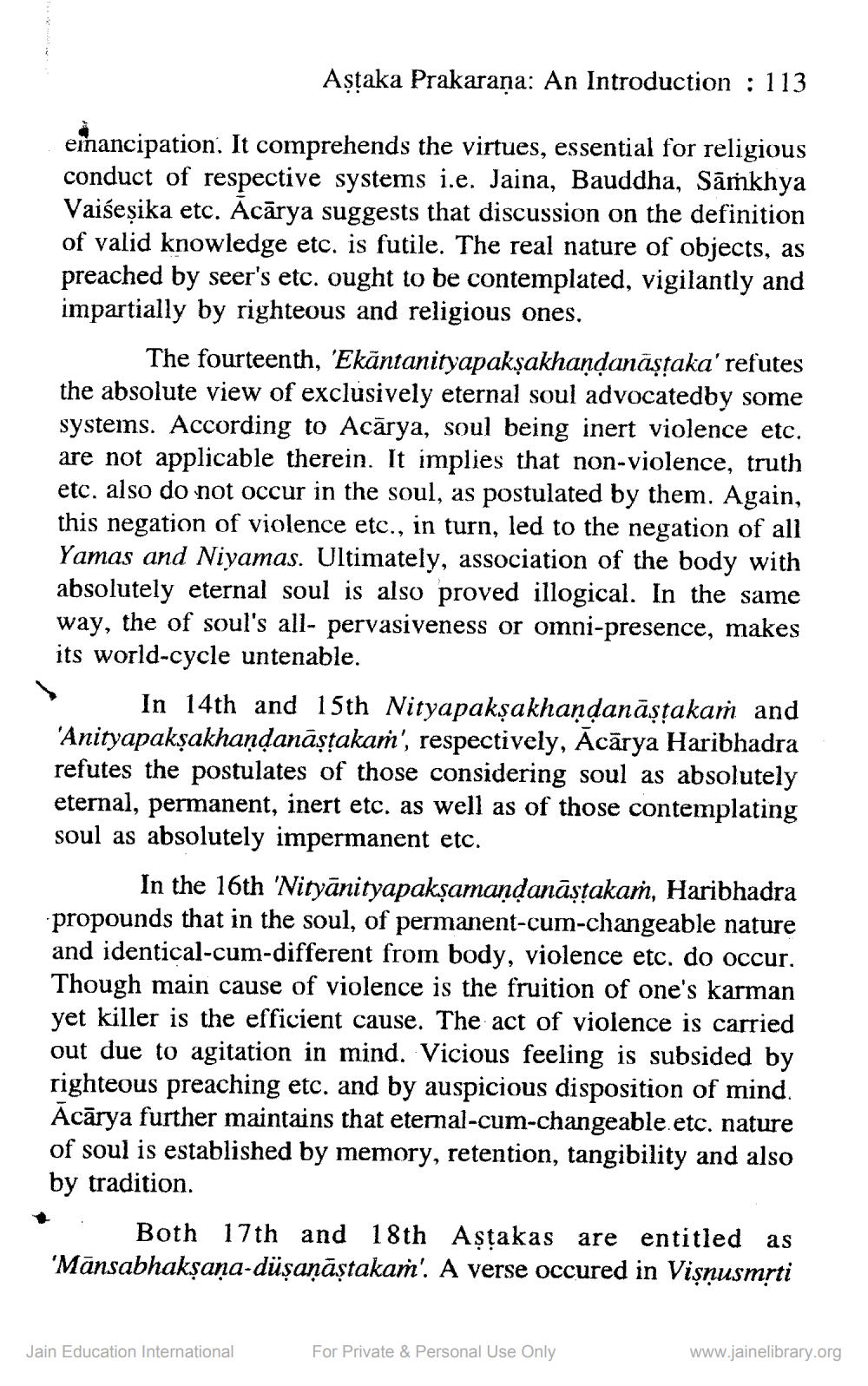________________
Aṣṭaka Prakarana: An Introduction 113
emancipation. It comprehends the virtues, essential for religious conduct of respective systems i.e. Jaina, Bauddha, Samkhya Vaiseṣika etc. Acarya suggests that discussion on the definition of valid knowledge etc. is futile. The real nature of objects, as preached by seer's etc. ought to be contemplated, vigilantly and impartially by righteous and religious ones.
The fourteenth, 'Ekäntanityapakṣakhaṇḍanāṣṭaka' refutes the absolute view of exclusively eternal soul advocatedby some systems. According to Acarya, soul being inert violence etc. are not applicable therein. implies that non-violence, truth etc. also do not occur in the soul, as postulated by them. Again, this negation of violence etc., in turn, led to the negation of all Yamas and Niyamas. Ultimately, association of the body with absolutely eternal soul is also proved illogical. In the same way, the of soul's all- pervasiveness or omni-presence, makes its world-cycle untenable.
In 14th and 15th Nityapakṣakhaṇḍanāṣṭakaṁ and 'Anityapakṣakhaṇḍanāṣṭakam', respectively, Acarya Haribhadra refutes the postulates of those considering soul as absolutely eternal, permanent, inert etc. as well as of those contemplating soul as absolutely impermanent etc.
In the 16th 'Nityānityapakṣamaṇḍanāṣṭakaṁ, Haribhadra propounds that in the soul, of permanent-cum-changeable nature and identical-cum-different from body, violence etc. do occur. Though main cause of violence is the fruition of one's karman yet killer is the efficient cause. The act of violence is carried out due to agitation in mind. Vicious feeling is subsided by righteous preaching etc. and by auspicious disposition of mind. Acarya further maintains that eternal-cum-changeable etc. nature of soul is established by memory, retention, tangibility and also by tradition.
Both 17th and 18th Aṣṭakas are entitled as 'Mānsabhakṣaṇa-düṣaṇāṣtakaṁ'. A verse occured in Vișnusmrti
Jain Education International
For Private & Personal Use Only
www.jainelibrary.org




